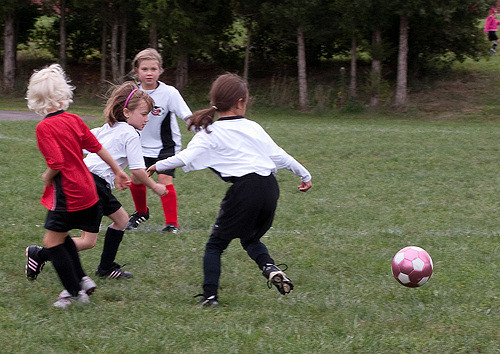Soccer has become one of the most popular games in the United States among kids. This has been helped along by the success of our national teams, with the U.S. Women’s National Team the reigning World Cup Champion, providing a fantastic model for the level of perseverance and teamwork required to become champions.
While athletic abilities are obviously a basic requirement for becoming a high level player, social-emotional learning (SEL) and executive functioning skills in soccer contribute to the making of a champion at any level. Soccer teams that can compete at high levels share characteristics of great teamwork; a higher understanding of one’s role on a team, sustained focus and effort, and self-control.
Parents and coaches can use children’s experience in playing soccer as an opportunity to improve SEL and executive functioning skills. Here are some of the ways:
Focus – Soccer typically involves two long halves of continuous play and is different than other sports, in that there is hardly any stoppage time. This requires players to sustain their focus over the course of the whole game. They need to pay attention even when the ball is not near their position, as a situation could change at any moment, and the ball could be played to them.
Self-Control – It is particularly difficulty for younger children to stay in their positions while playing soccer. They need to exercise self-control in not randomly chasing around after the ball and realizing how beneficial it is to the team for all players to be in their assigned spots. As children get older they start to play to the “offside” rule, and it is important for them not to be too eager to score and get called “offside.” They need to display self-control not to get in between the last defender and the goal before the ball is passed to them.
Self-Awareness – In soccer as in all other sports, it is important to be a good teammate and pass the ball to all of the players. It is essential to realize that each player on the field can contribute positively to a play. Children can also demonstrate self-awareness by thinking about where they are on the field: are they supposed to be left wing or right wing? If they have a dominant left foot, they should try to utilize that skill and position themselves on the left side of the field.
You can learn more about executive functions as thinking skills here, and SEL skills here. See our Playbook and App+ review library to find video games and apps that help engage kids in SEL and executive function development. For more about executive functions and the benefits of physical play, read “Danger and Video Games Help ADHD.”
Featured image: Flickr user Pete Toscano.




